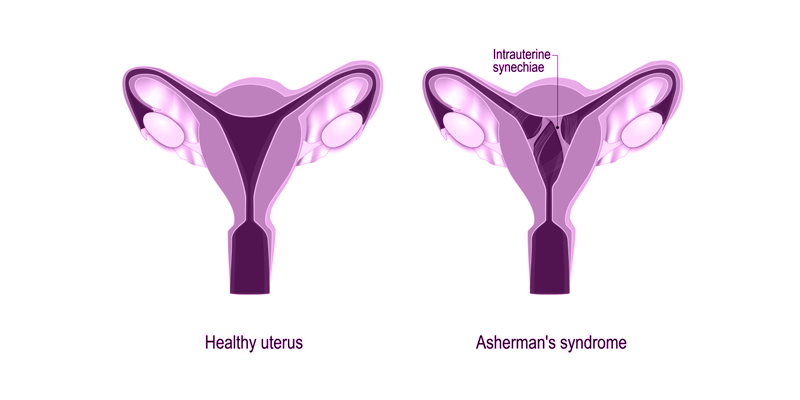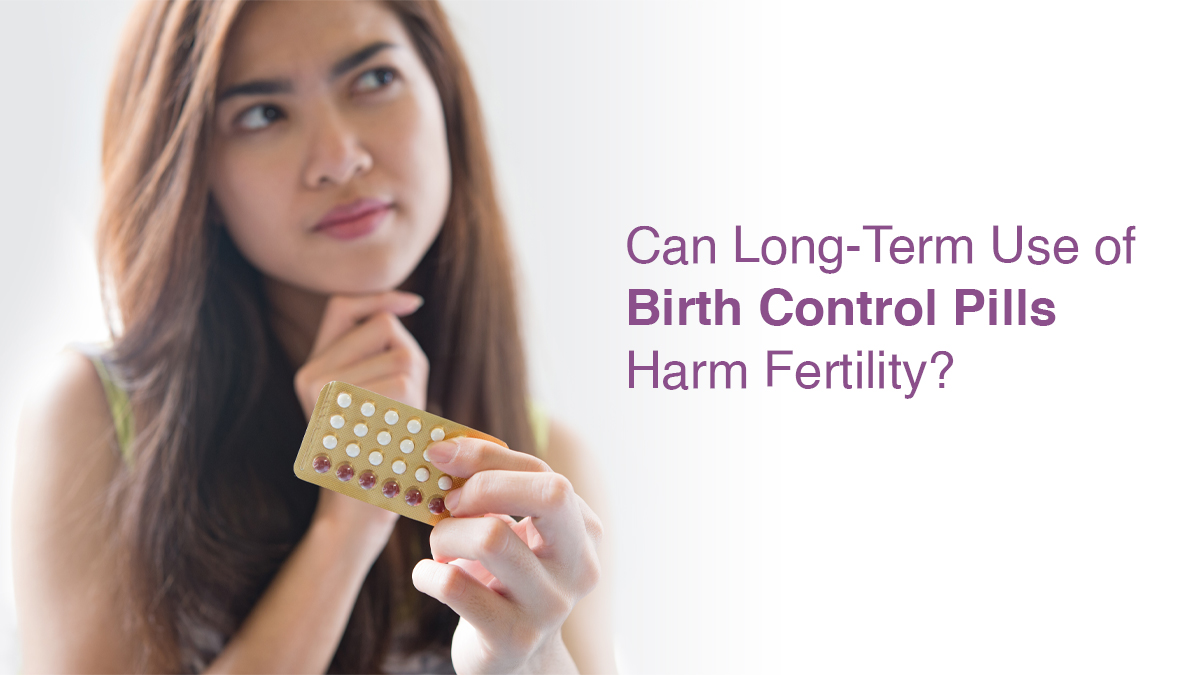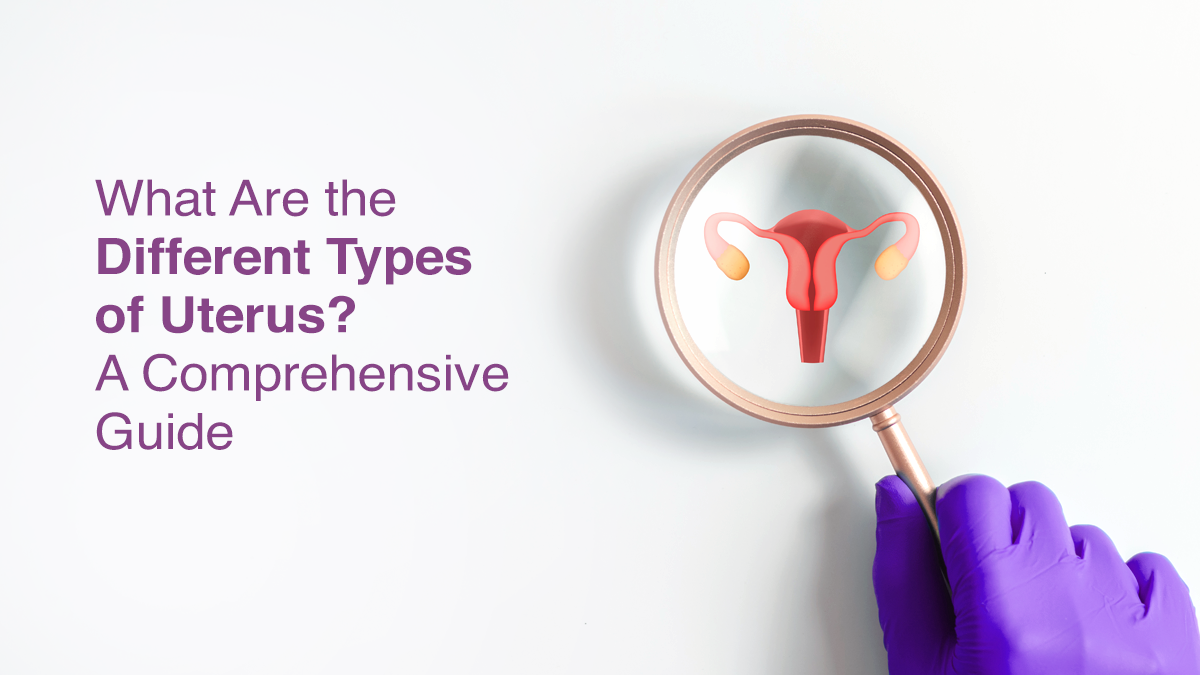
Intrauterine Adhesions and Infertility in Women

Infertility in women can occur due to a number of reasons such as PCOS, endometriosis, advanced age, uterine fibroids, obesity, etc. Not many are aware of intrauterine adhesions that can also lead to infertility. Advanced surgeries and fertility treatments can help women overcome this condition and achieve parenthood. If a woman has chronic pelvic pain or problems in the menstrual cycle like scanty or very heavy bleeding or is unable to conceive, it is highly essential to visit a fertility specialist.
What are Intrauterine Adhesions (IUA)?
Intrauterine Adhesion is also called Asherman Syndrome. The lining of the uterus is called the endometrium and when there is any injury or infection to this lining, adhesions (scar tissues) occur in the uterus which can lead to infertility issues. The endometrium is very vital for a natural pregnancy. Also, the success of assisted reproductive technologies like IVF depends on the endometrial thickness, pattern, etc.
Causes of intrauterine adhesions:
- Previous surgery of the uterus
- History of pelvic infections, most commonly tuberculosis
- D&C (Dilation and curettage)
- Endometritis (infection of the endometrium)
- Cesarean section
Symptoms of Uterine Adhesions:
- Light periods
- Absence of periods
- Infertility
- Repeated miscarriage
Impact of intrauterine adhesions on fertility
As everyone’s body and every case of intrauterine adhesions is different in the extent of the area of the uterus affected and severity, meaning there can be no generalized prediction of its impact on a woman’s fertility. The impact of uterine adhesions depends on the patient’s age, the severity of the condition, overall health, and family history of conception and pregnancies. The good part is that medical science has evolved to offer exceptional intrauterine adhesion treatments that can reduce the occurrence of symptoms, and improve the chances of pregnancy.
Mild or moderate IUA
These are asymptomatic and can often go undetected. In most women, these do not interfere with fertility. Women with mild to moderate uterine adhesions can conceive naturally after treatments and have high rates of healthy childbirths.
Severe IUA
Severe intrauterine adhesions can damage the endometrial lining extensively, which severely reduces the woman’s ability to get pregnant. The condition may cause hypomenorrhea (scanty periods) or even amenorrhea (missing periods). IUA exposes the woman to several fertility issues, such as failure of embryo implantation, poor blood supply to the placenta,
Even if the patient conceives naturally, the risk of pregnancy complications is significantly high. These include the inability of the uterus to nurture the embryo due to inadequate blood supply. Women with severe IUA, even after treatment, have a higher risk of ectopic pregnancy, repeat miscarriage, preterm labour, placenta previa (lower-than-normal attachment of the placenta), and intrauterine growth restriction.
Untreated or adverse IUA may cause complications in childbirth as well. For instance, increases the chances of stillbirth (foetal demise). It may also cause vaginal haemorrhage. It is a condition where the mother loses excessive blood within a few hours of giving birth to the child. The condition may be life-threatening for the mother.
Understanding Your Case of Uterine Adhesions
It is best to consult a fertility doctor to comprehensively assess your condition and not self-diagnose based on visible symptoms alone. If you are a woman over 35 or have been trying to conceive for over 6 months, the best route to determining the cause of infertility is consulting a specialist.
Fertility specialists assess your condition by listening to your symptoms and prescribing diagnostic tests to confirm and comprehensively understand your gynaecological condition and fertility. They prescribe intrauterine adhesion treatments to best suit your needs.
Fertility specialists may recommend assistive reproductive technologies, such as the IVF process, or IUI treatment for women who face difficulties in conceiving even after the treatment of intrauterine adhesions. IVF is a safe and popular treatment that helps couples with conception issues to experience parenthood.
Diagnosis of Uterine Adhesions
- Ultrasound
- Hysteroscope
- Hysterosalpingogram
Intrauterine adhesions treatment:
Treatment for women with IUA includes operative hysteroscopy for removal of adhesions, and medicines to prevent reformation of adhesions followed by an IVF cycle primed with PRP injections. Operative hysteroscopy is a minimally invasive procedure to treat abnormal conditions in the uterus. In the case of IUA, the scar tissues are removed by a hysteroscope. To help in the rejuvenation of the endometrium, PRP (Platelet rich plasma) injections are given as the endometrial lining plays a very significant role in enabling a successful pregnancy. PRP is created using the patient’s blood sample and it is rich in platelets and growth factors that enable the healing and rejuvenation of cells.
When a woman has any issues related to periods and is trying to conceive, it is very important to go for a fertility evaluation to know the underlying cause of infertility. Advanced fertility treatment options are available to remove adhesions in uterus to help couples overcome infertility and attain parenthood. The earlier the intervention, the better the outcome. Happy Parenthood!


fill up the form to get a
Free Consultation
Avail 0% interest on EMI
All Procedures | No Upper Limit
Frequently Asked Questions
Can intrauterine adhesions cause infertility?
Can you still get pregnant with uterine scarring?
Can adhesions stop periods?
What are the complications of intrauterine adhesions?
How we reviewed this article:
- Current Version
- August 30, 2024 by Oasis Fertility
- September 12, 2022 by Oasis Fertility
- September 7, 2022 by Oasis Fertility
- September 2, 2022 by Oasis Fertility
- August 23, 2022 by Oasis Fertility





